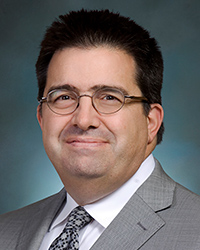Anthony Cabot

What is the most important thing you are working on now?
Professor Keith Miller from Drake Law and I are finishing a book on regulating sports wagering. It is topical because the United States Supreme Court will soon decide whether the Federal statute prohibiting states other than Nevada from authorizing full-service sports books is constitutional. If, as many predict, the court overturns the law, then legal sports wagering will rapidly spread across the United States. The book will provide the knowledge base for policymakers to successfully write and implement federal and state laws and for regulators to adequately regulate the honesty of wagering and protect against sports corruption.
What new information from your daily practice do you use in the classroom?
When I started practicing in 1981, all the U.S. gaming attorneys could have fit in an elevator. Gaming law was a small branch of privileged licensing. As the industry proliferated and regulation developed, a discipline called gaming law emerged that is nuanced and multi-disciplinary. Being intellectually curious, I used my practice to learn as much as I could about how different jurisdictions approached regulation and the policy reasons behind those choices. The best way to learn a topic is to write about it. So, four decades, hundreds of articles and 12 books later, I am still learning, writing about and hopefully contributing to the advancement of the discipline.
How has your work and experience changed your teaching approach or vice versa?
Stepping back from the practice after so many years has freed me to travel more for academic pursuits. In the past year or so, I visited Germany, The Czech Republic, Croatia, Ireland, Korea, Japan, and Macau to lecture or merely to explore the casinos and neighborhoods. While I traveled extensively in my law practice, these more recent trips were not client focused and permitted me to meet people and explore the cultures and their impact on gambling more fully. These experiences better equip me to provide more profound insights into the differences in gaming law and regulation across the world.